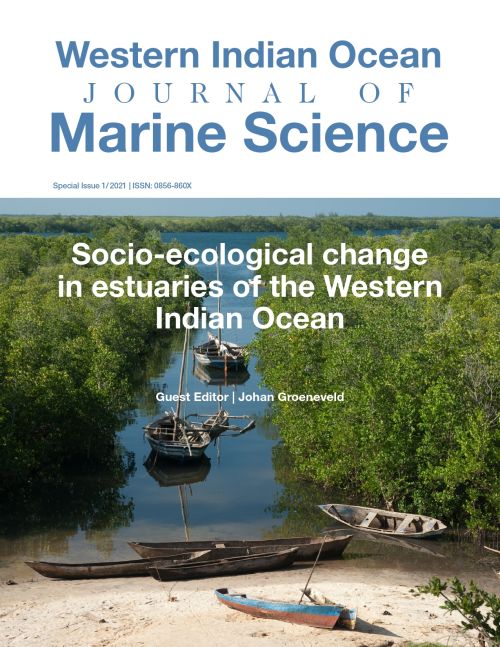Main Article Content
Household dependence on fish-based farming systems in the Bons Sinais Estuary in Mozambique
Abstract
Households in estuarine deltas of the Western Indian Ocean depend on small-scale fishing, farming in flood-recession and adjacent areas, and mangrove forest products for food security, energy and an income in so-called deltaic fish-based farming (FBF) systems. It was hypothesized that the relative importance of household activities would depend on location along the Bons Sinais Estuary in Mozambique, diversifying in peri-urban settings. Semi-structured interviews were undertaken at five sites, including rural sites near the estuary mouth and upstream, and peri-urban settings near Quelimane city. Fishing contributed the most to FBF livelihoods (54 %) followed by farming (15 %), small business operators (14 %), collection and use of mangrove products (6 %) and other activities such as wage-earning or formal employment (10 %). The highest diversity of activities was at a peri-urban site, Chuabo Dembe, which differed from all other sites in Cluster and Principal Components Analyses. Fishing dominated activities at four of five sites, with the highest preponderance near the estuary mouth. Women played an important role in generating household income, mainly through farming and operating small businesses in peri-urban areas. The education level declined in rural settings. Overexploitation and degradation of natural ecosystems to provide for an increasing urban population around Quelimane threaten estuarine functioning, making deltaic FBF systems vulnerable. Rural development programmes should focus on improving education levels and the efficiency of food production, processing and distribution systems.






